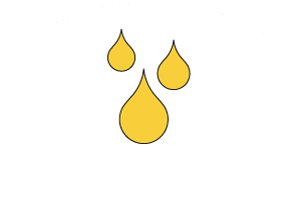
The importance of fats in the diet
The following article by the British Nutrition Foundation (www.nutrition.org.uk) explains why Mellow Yellow is a great source of the ideal type of fat we should be including in our diet.
Although sugars have been getting all the media coverage recently, it is still important to think about the amount and type of fat in your diet in relation to weight gain and health.
What is Fat?
Fat is a macronutrient (like protein and carbohydrate) and is made up of fatty acids. Fatty acids can be classified as saturated or unsaturated depending on their chemical structure. Unsaturated fatty acids include monounsaturated fatty acids and polyunsaturated fatty acids. All fats provide 9 calories (kcal) per gram, which is more than double the number of calories provided by each gram of protein and carbohydrate that we eat (4 kcal per gram each). A high fat diet can therefore lead to weight gain over time.
Why do we need it?
Fat is a good source of energy and we need some fat in our diets to help our bodies to absorb the fat soluble vitamins A, D, E and K.
Within the body, fatty acids form part of our cell membranes and fat also helps to insulate and protect our internal organs, contributes towards maintaining our body temperature and is involved in lots of body processes such as the development of our brains and the communications which occur between different cells. Cholesterol is needed to produce bile acids, which help us to digest food, and also some of our hormones.
We are able to synthesise most of the specific fatty acids we need apart from two polyunsaturated fatty acids - alpha linolenic acid (an omega 3 polyunsaturated fatty acid) and linoleic acid (an omega 6 polyunsaturated fatty acid). Your body needs these for brain development, growth and for a healthy immune system.
They are described as essential fatty acids as we need to obtain small amounts from the diet. Alpha linolenic acid is found in rapeseed, walnut and soya oils and spreads made from these. Linoleic acid is also found in plant based oils such as sunflower, corn, peanut, rapeseed, olive, safflower, sesame, walnut and soya oil and spreads made from these. Both of the essential fatty acids are present in smaller amounts in foods such as meat, eggs and oily fish.
How much fat should we be Eating?
UK dietary guidelines recommend that adults consume no more than 35% of the energy from their foods from fat. This equates to roughly 95 g of fat per day for men and 70 g for women. Our fat intake in the UK has been falling since the 1960s and, on average, we are now eating around these amounts. While low fat diets were promoted in previous years, diets containing a moderate amount of fat can be easier to adhere to. So while it is important to try to cut down your total fat consumption, if you are struggling to do this, focus on choosing healthier types of fat.
Saturated fat intake should be restricted to no more than 11% of food energy, which equates to roughly 30 g for men and 20 g for women per day. This is because a high intake of saturated fat has been linked to high blood cholesterol, which is a well-known risk factor for heart disease. It is recommended that we replace saturated fat in the diet with small amounts of unsaturated fats. In the UK, many of us are eating too much saturated fat and need to cut down, by opting for foods rich in unsaturated fats or complex carbohydrates (such as wholegrain foods), instead of those high in saturated fats.
How can I maintain a healthy body Weight?
Being overweight increases the risk of chronic diseases such as heart disease, type 2 diabetes and some cancers. In order to maintain a healthy body weight it is necessary to consume roughly the same amount of energy (calories) as your body uses for normal bodily functions and physical activity.
Reducing fat intake can often help cut back on calories but it is also important to reduce the amount of ‘free sugars’ and to watch portion sizes, as well as to be more active. ‘Free sugars’ are those added to foods by manufacturers, cooks and consumers (such as table sugar) as well as sugars naturally present in honey, syrups and fruit juice. Sugars found in fruits and vegetables and in milk and milk products such as plain yogurt and cheese are not classed as free sugars. Foods that are often high in fat and/or free sugars include cakes, biscuits, pastries, desserts, deep fried foods, crisps, butter, cream, chocolate, sweets, some cheeses and oils/spreads, so try to eat these foods less often.
There are some easy tips to remember when selecting and preparing food to help reduce your calorie intake and eat a healthy, balanced diet:
Base meals on starchy foods, wholegrain and high fibre versions where possible, such as wholemeal bread, wholemeal pasta, brown rice and potatoes with skins and plenty of fruits and vegetables
Remove visible fat from meat, skin from poultry, buy lean cuts wherever possible and try replacing some meat in your diet with pulses
Grill, bake, poach or steam foods instead of frying or roasting them
Choose low fat, unsweetened dairy products (e.g. skimmed or semi-skimmed milk, reduced fat cheese and low fat plain yoghurt)
Use reduced fat spreads where possible and opt for those high in unsaturated fats (see Introduction to Healthy Fats)
Choose tomato-based rather than creamy sauces
Cook from scratch wherever possible
Choose low calorie drinks such ‘diet’ fizzy drinks, unsweetened tea and coffee or plain water rather than sugars-sweetened options
Limit fruit juice to 150 ml per day. Try diluting it with water to make it go further.
Snack on fresh fruit and vegetables if you are hungry between meals rather than foods high in fat and/or free sugar
Eat more fibre – adults should be aiming to consume 30 g fibre per day to reduce the risk of chronic diseases such as heart disease, type 2 diabetes and colon cancer. Fibre-rich foods include wholegrain foods, potatoes with skins, fruit and vegetables, pulses, nuts and seeds.




